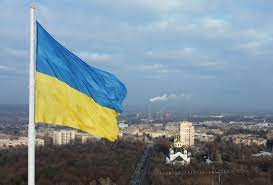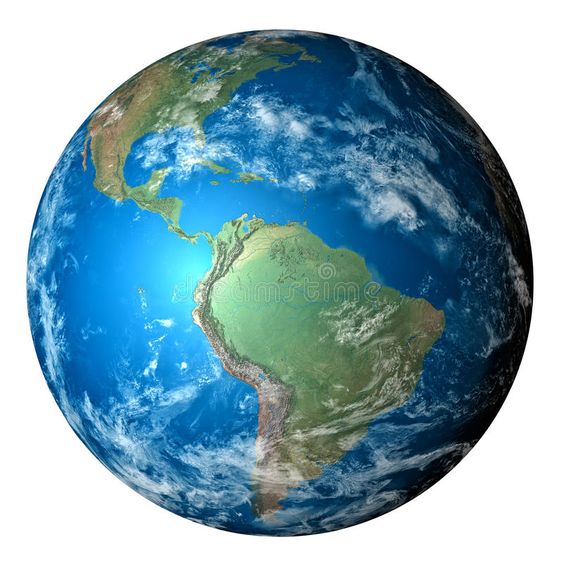
The most likely outcome of the series of meetings on Russian troops’ crossing over into Ukraine will be a compromise of sorts. The compromise would be seen as half a victory for Putin and half a defeat for Biden.
By Tom Arms
We are entering Ukraine Week. A series of meetings across Europe and at the highest level will probably determine whether 100,000 Russian troops will cross the border into Eastern Ukraine and ignite Europe’s greatest crisis since the end of the Cold War.
It started Friday with a Zoom meeting of NATO foreign ministers. On Monday Joe Biden and Vladimir Putin go head to head in Geneva. Next Wednesday NATO heads of government hold a summit in Brussels, and the following day, in Vienna, the 57 members of the Organization of Security and Cooperation in Europe (OSCE) meet in Vienna. The last event includes Ukrainian President Volodmyr Zelensky who will discover just how far other countries will go to defend his nation’s sovereignty.
Conspicuous by its absence from these talks is the EU. The reason is that the issues are primarily security and military and the EU has no defence forces. It will, however, be heavily affected by any Putin-Biden pact and its diplomats will be flapping around the edges of Ukraine Week trying to make its collective voice heard.
So far Putin has done all the running. He annexed Crimea in 2014 and moved his “Green Men” into Eastern Ukraine. He has disrupted shipping in the Sea of Azov and Black Sea; threatened gas supplies to Western Europe and now has 100,000 troops camped out on the Ukrainian-Russian border.
When the West objected he said his moves were necessary for protection from the Eastward expansion of NATO and tabled a series of proposals which basically prevented any other European states from joining the Western Alliance. He also demanded NATO forces pull back in countries such as Poland and the Baltic States. Implied with these demands is the threat of a Russian attack on Ukraine if the US and Europe do not give in.
Ukraine, Georgia, Sweden and Finland have all strongly objected to the Russian demands. They are all non-NATO members who want the option to join the Alliance and object to Moscow dictating their foreign policy.
Also, loud in their opposition to Putin’s demands are the former Soviet satellites who are now NATO members and relatively secure under the US nuclear umbrella. They fear that a reduction of NATO forces on their territory will increase the influence in their region of their former masters in the Kremlin.
The problem is lack of wholehearted US support and the inability of NATO to act without the US. The American public is currently suffering one of its periodic bouts of isolationism following disasters in Afghanistan and the Middle East. Washington is also annoyed that Europe has not beefed up its defence forces to protect itself against Russian aggression. And finally, the US is these days more focused on the Chinese threat.
The result is that US-led NATO has said it will not send military forces to Ukraine if it is invaded by Russia.
This would appear on the surface to give Putin the upper hand; possibly a green light, almost certainly an amber light. But things are not so simple. For a start, the 250,000-strong Ukrainian army is a force to be reckoned with. It would lose in a conventional war with the Russians, but in doing so would inflict serious losses on the Russian bear and could organize a long, expensive and politically damaging guerrilla war.
Next the US and NATO allies are unwilling to send troops but they have made it clear that any attack would be countered with heavy sanctions, including the likelihood of locking Russians out of the SWIFT system which manages international banking transactions.
Putin has said that any sanctions would result in Russian countermeasures which could take the form of blocking gas supplies to Western Europe, cyber-attacks or even a military attack elsewhere.
But the Russian President does not hold all the cards. His domestic approval ratings are dropping and the Russian economy is floundering. Sanctions plus the cost of invading Ukraine would prove a severe drain on the state coffers.
Moscow is also in danger of militarily over-extending itself. It has just sent troops to Kazakhstan to quench a rebellion there; is heavily involved in the Syrian civil war; has troops keeping the peace in Armenia/Azerbaijan and is maintaining a watchful eye over troubled Belarus.
The fact is that neither side is in an unassailable position. The most likely outcome will be a compromise of sorts. The problem is that any compromise would be seen as half a victory for Putin and half a defeat for Biden.
- In his inaugural address President Joe Biden said he wanted to be a unifying figure. For the past year he has sought to do that by largely refraining from attacking Donald Trump and his “election lie” and by staying aloof from the congressional inquiry into the Capitol Hill Riots. This week he climbed off the fence and took off the gloves with this speech in the Rotunda at Capitol Hill. He accused his predecessor of “spreading a web of lies” that led to the 6 January assault. He lamented that the “threats to the constitution have not abated” since he took office and attacked Trump for caring more about his “bruised ego than the democracy or our constitution.” If Biden’s intention is to unite, his speech may have been a mistake. Staunch Republicans have denounced it and even the center-right Wall Street Journal labelled it divisive.” Biden’s address coincides with the launch of a book entitled “How Civil Wars Start.” The author, American academic Barbara Walter, has spent years, studying civil wars around the world and has sadly concluded that America may be going down the same path as Egypt, Syria and the former Yugoslavia. Ms. Walter says one of the main causes of civil war is politicians exploiting ethnic divisions for political gain. She points out that Republicans are appealing to Whites and Democrats to a coalition of ethnic minorities and the country could—based on the experience of other countries—she says that the US may be heading inexorably towards violent conflict. Can it be averted? Biden’s speech may have been divisive but could he afford to continue to ignore Trump’s outrageous claims on the anniversary of the Capitol Hill riots? The situation has certainly not been helped by Trump’s rambling over the top response to the Biden speech. Americans should dispense with the phrase “it can’t happen here” and start seriously thinking about how to stop a civil war happening.
- Kazakhstan is currently discovering the cost of keeping the lid on dissent. Since independence from Moscow in December 1991 the government has blocked access to the internet, kept a tight rein on the traditional media, controlled the courts and organized elections which resulted with the government regularly winning 100 percent of the vote. After 25 years in office Nursultan Nazarbayev handpicked his successor Kassym-Jomart Tokayev in 2019 but retained power behind the scenes as chairman of the country’s Security Council. Since independence the country has enjoyed major economic growth as it exploited its vast oil, gas, goal and mineral resources. But the cash has not filtered down to the country’s 18 million people who inhabit a country the size of all of Western Europe. Their average income is only $3,000 a year. The man and woman in the street, however, did enjoy a few perks such as a cap on the price of liquefied petroleum which is used to run most of the country’s vehicles. It was the lifting of that cap which provided the spark that blew the lid off the Kazakhstan pressure cooker this week. So far it has been reported that 26 protesters (President Tokayev labelled them “terrorists” and “bandits”) have been killed. More than a thousand have been injured and 400 hospitalized. Tokayev has ordered troops to shoot to kill future protesters. He has also called on his friend Vladimir Putin for 2,000 “peacekeeping” troops under their collective security treaty. Russia has a major stake in Kazakhstan. There is a large Russian-speaking minority; Russian military bases; major gas pipelines and the world’s largest—Russian-owned– satellite launching facility. The Russians are keen to see stability return to an important ally and were probably behind the decision to re-impose the price cap on LPG fuel for the next six months.
- “Experts, the public is sick of experts,” is a phrase that was coined by Michael Gove during the Brexit debate. It is now been adopted with a vengeance by Turkey’s President Recep Tayyip Erdogan. The advice of virtually every economist in the world—and the one followed by almost every government—is that when prices go up, the country’s central bank raises interest rates. Not Turkey. As inflation has risen, President Erdogan has ordered the central bank to lower interest rates for the Turkish lira. Since September central bank rates have dropped from 18 to 14 percent. Inflation—surprise surprise—has climbed to twenty percent and the lira has fallen 40 percent against the dollar. For the first time in years a currency black market is emerging on the streets of Istanbul and Izmir. Erdogan has countered the problem by guaranteeing the value of Turkey’s $300 billion in bank-held personal savings against the dollar. So far this has cost Turkey’s central bank $20 billion of its foreign reserves. If the lira continues to fall—which it almost certainly will—than the cost to the bank could run into an unsustainable hundreds of billions of dollars. The good news is that a collapsed Turkish lira could make the Turkish Riviera THE place to holiday this coming summer—pandemic allowing.
- The EU’s difficult relationship with China and Taiwan has been underscored by tiny EU member Lithuania allowing the opening of the Taiwanese Representative Office. Usually the diplomatic niceties of allowing Taiwanese representatives in a county are circumvented by using the name of Taiwan’s capital and labelling their premises the “Taipei Representative Office.” Not so, in Vilnius who used the name of the country and incurred the wrath of Beijing not only for Lithuania but also the wider EU. The Chinese quickly downgraded diplomatic relations and restricted trade with Lithuania and its 2.7 million citizens. At first the Baltic state remained defiant. But then, this week cracks appeared in their principled stand when Lithuanian President Gitanas Nauseda expressed doubts about the wisdom of his country’s over the sign on the door and suggested that the office should have been labelled as coming from Taipei instead of Taiwan. China’s foreign ministry said recognizing a mistake was the right step, but more concessions were needed. The change of direction was clearly the result of unofficial Chinese boycott of selected goods—not only from Lithuania but from the wider EU. China has denied any boycott, but the EU has threatened to file a complaint with the World Trade Organization. The situation is complicated by a disagreement within the Lithuanian government over the wisdom of closer relations with Taiwan/Taipei. And then there is the fact that the EU as a whole may have extensive trade with China but only one percent of Lithuania’s exports go there. Finally, Taiwan this week forcibly entered the fray by announcing it was investing $200 million in plucky Lithuania and buying 20,000 bottles of Lithuanian rum that were turned away by Chinese customs officials. The story continues to run.
[author title=”Tom Arms ” image=”https://sindhcourier.com/wp-content/uploads/2021/05/Tom-Arms-Journalist-Sindh-Courier.jpg”]Tom Arms is Foreign Editor of Liberal Democrat Voice and author of “America Made in Britain.”[/author]
